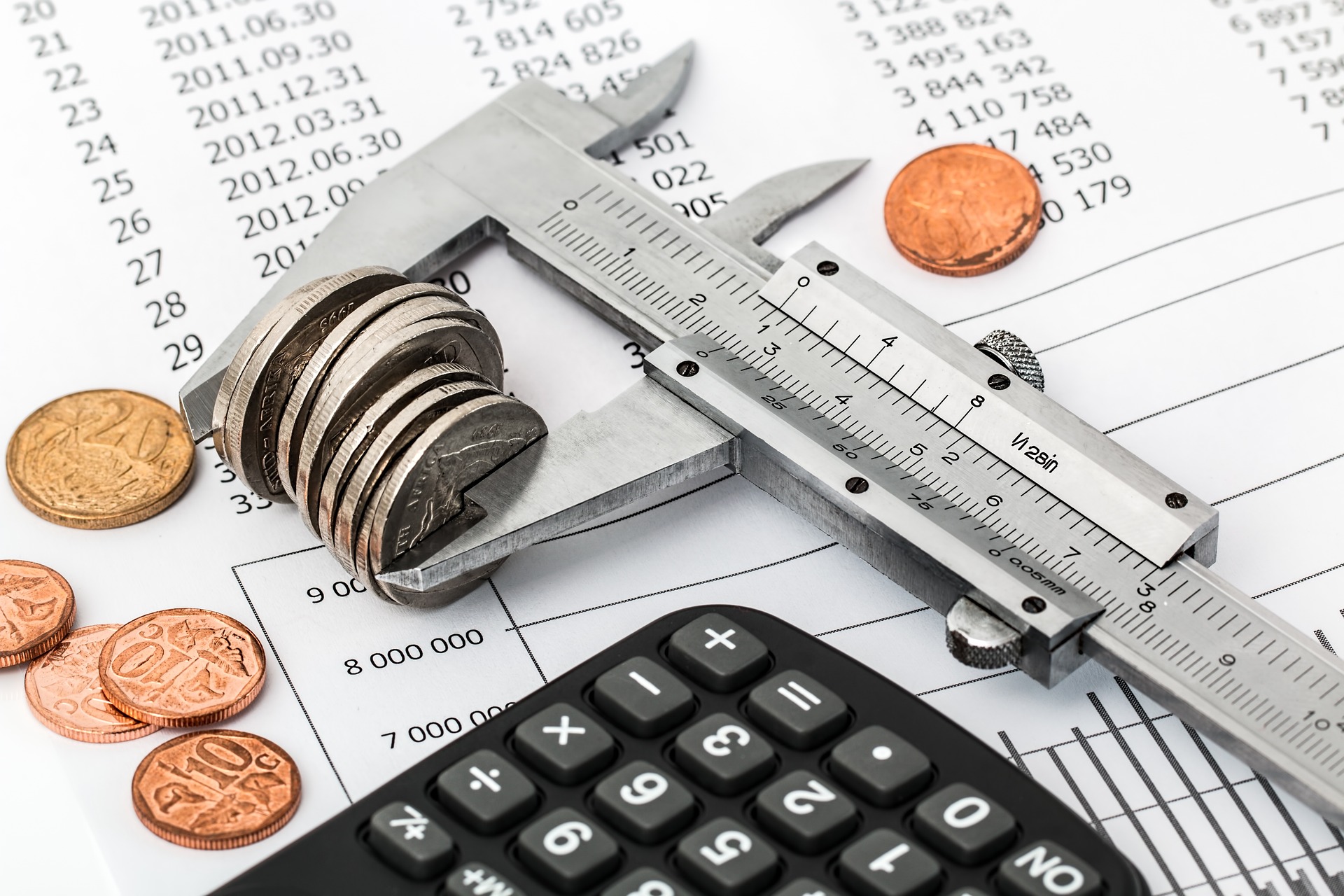Do you struggle with money management and frequently find yourself out of money before your next paycheck? Don’t worry; the majority of people in the world struggle to make ends meet. The first step in taking charge of your financial condition is to create a personal budget. I’ll walk you through the process of making your first personal budget in this simple to read article. These easy steps will provide you the information and resources you need to manage your money wisely and begin creating a secure future for yourself.
Understanding the Importance of Budgeting
What is budgeting?
Budgeting is like creating a road map for your money. It’s all about knowing how much money you have coming in and where it needs to go. By keeping track of what you earn and what you spend you can make sure you’re not overspending and making smart choices with your finances.
Budgeting helps you figure out what’s most important to you and save up for things you really want. It also protects you from getting into financial trouble by helping you avoid taking on too much debt. So, think of budgeting as a way to take control of your money and make sure it’s working for you in the best possible way.
What are the Benefits of budgeting?
Creating and sticking to a budget can bring you so many good things. One of the best parts is that it puts you in charge of your money and takes away that overwhelming feeling of financial stress. Budgeting helps you keep a close eye on where your money is going, so you can find places to save and put that extra cash towards your dreams.
It also helps you prepare for unexpected surprises by setting aside money for those emergency moments and building up a safety net. Plus, when you budget, you’re on your way to long-term financial stability, which means peace of mind and a brighter future.
How to create a budget in 6 simple steps?
#1: Assessing your financial situation.
It’s crucial to evaluate your current financial situation before you start budgeting. Determine how much money you earn each month, including your salary, any additional revenue, and all other sources of income. Then, gather all the details about what you spend your money on, such as bills, loan payments, groceries, transportation costs, and fun activities. Understanding exactly how much money comes in and goes out will give you a clear picture of where you’re starting from, which is super helpful for creating a budget that fits your unique situation.
#2: Setting financial goals.
Now that you know where you stand financially, it’s time to think about what you want to achieve with your money. Maybe you want to save up for your dream house, pay off the student loans, invest on a dream vacation or save up for the worry free retirement , everything is possible with the right mindset. The goal can be small or bigger depending on the person and can be different for everyone which is completely okay.
The most important thing is to have goals that are specific, measurable, achievable, relevant, and time-bound . When you have clear goals like these, it keeps you focused and excited throughout your budgeting journey. So, think about what you truly desire and let those goals guide you towards a brighter financial future.
#3: Tracking your expenses.
It’s crucial to keep an close look at your spending if you want to create a budget that actually works. Start by classifying your spending into groups such as housing, transportation, groceries, bills, paying off debts, and fun things. You can keep track of your costs in a variety of ways, based on what seems right to you. You may create spreadsheets, use useful applications, or just write everything down in a notepad.
Pick the approach that works best for you and make a commitment to yourself to record every expense. Although it may seem insignificant, it can have a significant impact on your ability to manage your finances and accomplish your objectives. Prepare to be more conscious of where your money is going as a result.
How to differentiate between fixed expenses and flexible expenses?
It’s essential to know that there are two categories of spending you can categorize: fixed and flexible. Your rent or mortgage payment, insurance premiums, and utility expenditures are examples of fixed expenses that occur each month and are essentially constant. They are the occurrences that you can depend on. Flexible costs, on the other hand, are more flexible and not really necessary. They are the enjoyable activities that you can choose to do or not do, such as eating out, seeing a movie, or shopping for unnecessary items. Knowing the difference enables you to decide where your money should go first and, if necessary, to make adjustments.
#4: Creating a budget plan.
Now it’s time to put together your budget plan. First, make sure you have enough money set aside for your essential expenses, like rent, utilities, and groceries. These are the things you absolutely need to have covered. Next, think about your financial goals and set aside some money to help achieve them. It could be anything from saving up for something special to paying off debt or building up an emergency fund.
Whatever it is, make sure you have a plan for it. Finally, don’t forget to leave some room for fun as well. Allocating a portion of your income to discretionary expenses means you can still enjoy yourself and do things you love, like eating out or going to the movies. Just remember to keep an eye on your spending and stay within your budget. With this plan in place, you’ll feel much more in control of your money and on your way to achieving your goals.
#5: Monitoring and adjusting your budget.
Creating a budget isn’t just a one-time thing, it’s an ongoing process. It’s important to keep an eye on your budget and make changes when needed. Keep track of your spending and compare it to what you planned. If you notice you’re spending more in certain areas than you intended, look for ways to cut back or find cheaper options.
For example, you could eat out less often, find ways to save on your utility bills or cancel unnecessary subscriptions. By regularly checking and adjusting your budget, you make sure it stays realistic and helps you reach your financial goals. It’s like giving your budget a little tune-up to keep it running smoothly. So, don’t be afraid to make tweaks along the way it’s all part of staying on track and making your money work for you.
#6: Utilizing budgeting tools and resources.
You’re not alone in this budgeting journey. There are lots of helpful tools and resources out there to make managing your money easier. You can try using mobile apps or websites that let you track your expenses, set savings goals, and get personalized tips for your finances. These tools show your spending in easy-to-understand graphs, remind you about upcoming bills, and might even suggest ways to make your budget better.
It’s like having a smart friend who helps you stay on top of your money. Also, there are plenty of educational resources like blogs, books, and podcasts that can teach you more about personal finance and give you great ideas for budgeting strategies. So, don’t hesitate to explore these tools and learn more.
How to Develop a Positive Money Mindset?
1. Changing your attitude towards money.
Budgeting is more than just crunching numbers. it’s about having a positive mindset towards money. Take a moment to think about how you feel about money and if there are any negative thoughts or beliefs holding you back. It’s time to change your perspective from scarcity to abundance, seeing all the possibilities and opportunities that come with managing your money wisely.
Embrace the idea that budgeting is a tool that empowers you and leads to long-term financial happiness. Remember, it’s not about what you can’t have, but about what you can achieve and enjoy by making smart financial choices. So, let go of those limiting beliefs and welcome a mindset of abundance and financial well-being.
2. Building healthy spending habits.
Building good spending habits is key to budgeting success. Start by being mindful of how you spend your money. Take a moment to think about each purchase and how it will affect your long-term goals. Ask yourself if it’s something you truly need or just something you want. Give priority to essential expenses while being aware of how much you spend on non-essential things. By making conscious choices about your spending, you can avoid impulsive buying and make smarter decisions with your money. It’s all about being intentional and thoughtful when it comes to your finances. So, take a breath, think it through, and make choices that align with your goals.
3. Practicing self-discipline.
Budgeting calls for self-discipline and the strength to resist the temptation of immediate rewards. It might mean making small sacrifices now to secure a stable financial future. Discover strategies that suit you, like setting savings goals, taking on a “no-spend” challenge for a set time, or finding support from a budgeting buddy or group.
Remember to celebrate every small triumph along the way to stay motivated and strengthen positive financial habits. Each step forward is worth cheering for. You have the power to make wise choices and build a brighter financial future. Stay focused, stay strong, and keep moving forward.
3 Common Budgeting Challenges to Overcome
1. Dealing with unexpected expenses.
Budgeting can be tough when unexpected expenses pop up, like medical emergencies, car repairs, or home maintenance. That’s why it’s so important to have an emergency fund as part of your budget. Put aside some money from your income specifically for these surprise costs.
Over time, this fund will grow into a safety net that keeps you financially secure and helps you avoid going into debt when unexpected things happen. It’s like having a cushion to fall back on when life throws you a curveball. So, make building that emergency fund a priority in your budget. It’s your way of taking control and being prepared for whatever comes your way.
2. Managing debt effectively.
Dealing with debt can feel overwhelming, but it’s an important step toward financial freedom. When you make your budget, make repaying your debts a top priority. Set aside some money from your income to pay off what you owe, starting with the debts that have high interest rates. You could also explore options like consolidating your debt or negotiating with creditors to make your payments more manageable and possibly reduce the interest you’re charged.
If you’re not sure where to start, consider reaching out to a professional for guidance. They can help you create a personalized plan to manage your debts based on your budget and goals. Remember, tackling your debt is a brave and powerful move that brings you closer to financial peace.
3. Staying motivated and committed.
Budgeting is a journey that requires dedication, and it’s normal to feel tempted or tired at times. To stay motivated, make it a habit to revisit your financial goals regularly and remind yourself of the positive changes budgeting can bring to your life. Take time to celebrate each milestone and progress you make, whether it’s hitting a savings goal or paying off a debt.
Surround yourself with people who support you or find someone who can be your accountability partner, cheering you on and inspiring you to stay on track. Remember, you’re not alone on this path, and every step you take brings you closer to financial success. Keep going and keep believing in yourself.
Conclusion
Creating your first personal budget is a big step towards financial stability and making your dreams come true. By learning the basics of budgeting, keeping track of your money coming in and going out, setting goals for what you want to achieve, and having a positive attitude towards money, you can take charge of your finances. It’s normal to face challenges, but staying committed and using helpful budgeting tools and resources will make your journey even better. Just remember, budgeting is not a one-time thing it’s an ongoing process.
You need to check in regularly, make changes when needed, and be open to adjusting as things change. With determination and a little bit of flexibility, you’ll be well on your way to financial success. As you start your budgeting adventure, remember that every money choice you make brings you closer to a better and brighter future. By embracing the mindset of budgeting, being disciplined with yourself, and staying motivated, you can completely change your financial life and make your dreams come true. Believe in your ability to make a difference, stay focused, and keep pushing forward. Your financial journey is full of potential, and you have the power to create a prosperous and fulfilling future.
Frequently Asked Questions (FAQs)
- How long does it take to create a personal budget?
The time required to create a personal budget depends on various factors, such as the complexity of your financial situation and the level of detail you wish to incorporate. Initially, it may take a few hours to gather information and set up your budget. However, ongoing maintenance and adjustments are necessary, so consider budgeting as an ongoing process rather than a one-time task.
- Is it necessary to track every single expense?
While tracking every single expense can provide a comprehensive view of your spending habits, it may not be practical for everyone. However, it is recommended to track your expenses at least for a few months initially to get a clear understanding of your spending patterns. From there, you can make informed decisions and adjust your budget accordingly.
- How do I deal with unexpected expenses that exceed my budget?
Unexpected expenses are a common challenge. To handle them, it’s essential to have an emergency fund as part of your budget. This fund acts as a financial safety net to cover unexpected costs. If an expense exceeds your budget, consider reevaluating your budget categories and making adjustments to accommodate the unexpected cost without jeopardizing your overall financial goals.
- What if I have irregular income or multiple income sources?
If you have irregular income or multiple income sources, budgeting can be more challenging but not impossible. Start by analyzing your average monthly income based on historical data. Build a budget that focuses on covering essential expenses first and allocate a portion of your income towards savings and debt repayment. Consider creating a buffer by saving during high-income months to prepare for leaner periods.
- Can budgeting help me achieve financial independence?
Absolutely! Budgeting is a powerful tool that can help you achieve financial independence. By tracking your expenses, prioritizing savings, and living within your means, you can build wealth, pay off debt, and work towards financial freedom. Budgeting enables you to take control of your financial life, make informed decisions, and create a solid foundation for a secure future.





